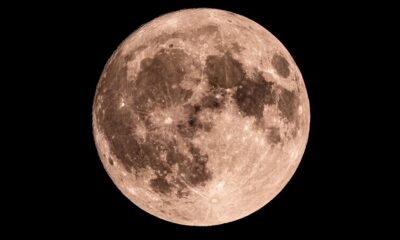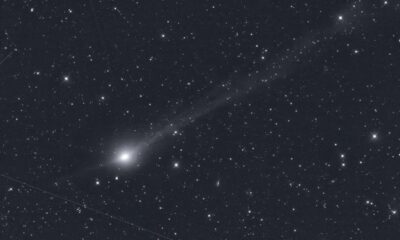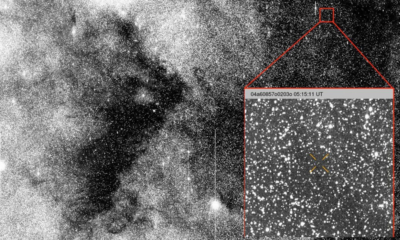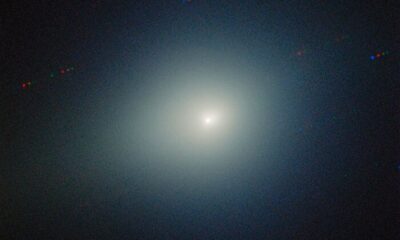Science
Science Journal Retracts Controversial Study on Arsenic-Eating Bacteria
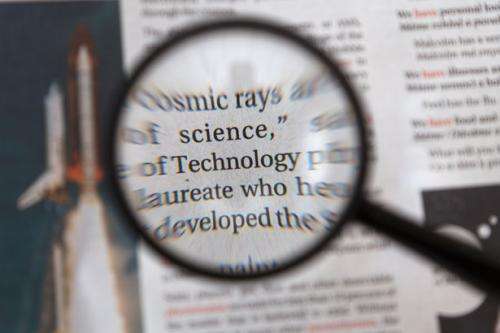
A prominent scientific journal has retracted a study that claimed to identify a form of bacteria capable of using arsenic—a toxic element—as a building block for its biological processes. The decision, made on July 25, 2025, by the journal Science, has sparked debate within the scientific community, particularly among the study’s authors, who maintain the validity of their findings.
This controversial research emerged over a decade ago when scientists announced a groundbreaking discovery in a California lake. They suggested that certain bacteria could thrive by incorporating arsenic into their DNA and proteins, which would challenge existing notions about the limits of life on Earth and potentially other planets. Such a breakthrough could expand the understanding of life forms in extreme environments.
Despite the initial excitement, several research teams struggled to replicate the original results. Critics have raised concerns that the experiments might have been influenced by undetected contaminants, leading to misleading conclusions about the bacteria’s capabilities.
In a statement regarding the retraction, Holden Thorp, editor-in-chief of Science, explained that the decision was not a reflection of misconduct by the researchers. Instead, he noted, “If the editors determine that a paper’s reported experiments do not support its key conclusions, even if no fraud or manipulation occurred, a retraction is considered appropriate.”
While the retraction has stirred controversy, the authors of the study, including Ariel Anbar from Arizona State University, have expressed their disagreement with the journal’s action. Anbar emphasized that differing interpretations of scientific data should not warrant a retraction. “One doesn’t retract a paper because the interpretation is controversial, or even because most disagree with the interpretation,” he stated in an email. “At least, that hasn’t been the case until now.”
This incident reflects a broader trend within scientific publishing, as Thorp and Vada Vinson, executive editor of Science, noted in a blog post. They highlighted that the journal has increasingly retracted papers for reasons beyond fraud in recent years.
The original research was partially funded by NASA, and its science mission chief, Nicky Fox, publicly expressed support for the study. Fox stated that NASA does not endorse the retraction and urged Science to reconsider its decision. This request underscores the continuing debate over the findings and their implications for the understanding of life in extreme environments.
As discussions surrounding the retraction unfold, the scientific community remains divided. Critics of the initial research argue that the findings lacked sufficient evidence and reproducibility, while supporters defend the study’s contributions to the field. The ongoing dialogue reflects the complex nature of scientific inquiry, where challenges and disagreements are integral to progress.
The retraction of this study serves as a reminder of the rigorous standards required in scientific research and the importance of reproducibility in validating groundbreaking claims. As the conversation develops, it will be crucial to monitor how this situation influences future research and publication practices in the scientific community.
-

 World2 weeks ago
World2 weeks agoCoronation Street’s Shocking Murder Twist Reveals Family Secrets
-

 Entertainment1 week ago
Entertainment1 week agoAndrew Pierce Confirms Departure from ITV’s Good Morning Britain
-

 Entertainment5 months ago
Entertainment5 months agoKate Garraway Sells £2 Million Home Amid Financial Struggles
-

 Entertainment4 months ago
Entertainment4 months agoAnn Ming Reflects on ITV’s ‘I Fought the Law’ Drama
-

 Entertainment1 month ago
Entertainment1 month agoCoronation Street Fans React as Todd Faces Heartbreaking Choice
-

 Health4 months ago
Health4 months agoKatie Price Faces New Health Concerns After Cancer Symptoms Resurface
-

 World1 month ago
World1 month agoBailey Announces Heartbreaking Split from Rebecca After Reunion
-

 Entertainment2 weeks ago
Entertainment2 weeks agoTwo Stars Evicted from I’m A Celebrity Just Days Before Finale
-

 Entertainment4 months ago
Entertainment4 months agoCoronation Street’s Carl Webster Faces Trouble with New Affairs
-

 World2 weeks ago
World2 weeks agoKevin Sinfield Exceeds Fundraising Goal Ahead of Final Marathons
-

 Entertainment4 months ago
Entertainment4 months agoWhere is Tinder Swindler Simon Leviev? Latest Updates Revealed
-

 Entertainment5 months ago
Entertainment5 months agoMarkiplier Addresses AI Controversy During Livestream Response

